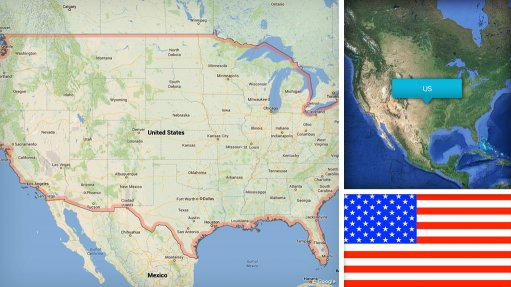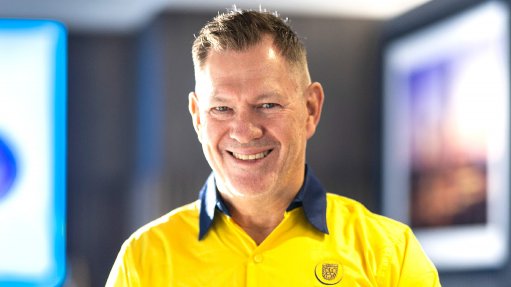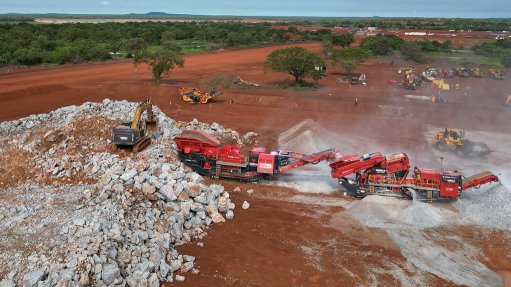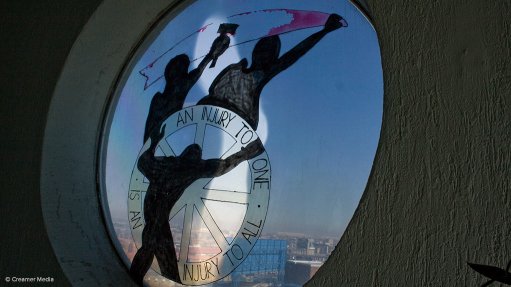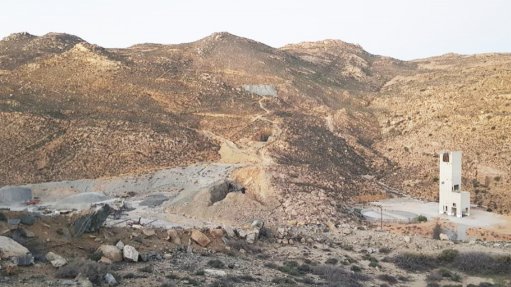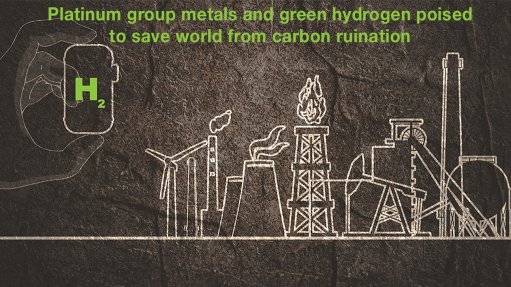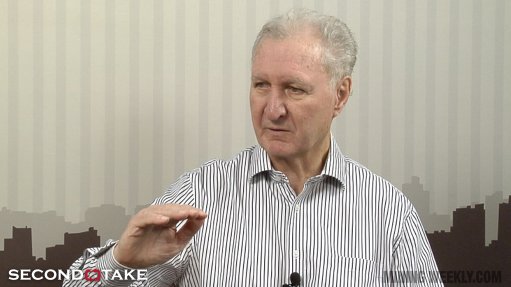BME expanding explosives manufacturing capacity to secure supplies to Southern African customers
Explosives supplier BME is bolstering the ways in which it manages supply security constraints for its Southern African clients.
This was noted by BME MD Francois Hay during his opening address at the company's twenty-first yearly Drilling and Blasting Conference at the Council for Scientific and Industrial Research’s International Conference Centre, in Pretoria, earlier this month.
In addition to its existing two emulsion plants in South Africa and ten plants in the rest of Africa, BME is constructing a new emulsion plant in Delmas, Mpumalanga, and has doubled the capacity of its emulsion plant in Fochville, Gauteng.
Hay noted that its R1.4-billion nitric acid complex, established in March last year, also helped in ensuring a steady supply of the liquid.
BME also has a local and international supplier of ammonia to ensure a sufficient supply of ammonia to its customers is maintained.
Despite the turmoil in South Africa’s mining industry, BME is still committed to efficiently supplying the needs of its customers, while exploiting international opportunities and those in the rest of Africa.
“We are taking advantage of our international opportunities and have registered demand growth in Botswana, Zambia, the Democratic Republic of Congo, Namibia and in some West African countries,” Hay told the delegates at the conference.
In the last 18 months, BME has re-entered Tanzania and has established premises in Burkina Faso. The company is undertaking blasting in Mozambique and Eritrea, has started training in Indonesia and is also undertaking electronic detonator trials in Australia.
BME noted significant growth for its Axxis electronic detonator product, which was launched onto the market in 2010, and added that its microbooster product had been well received, Hay added.
BME has increased its used-oil capacity and is developing products that can increase the loading of used oil. “We are confident that we will soon be able to roll out 100% used-oil-based products,” he enthused.
Macroeconomist and senior economics lecturer at the universities of Pretoria and Johannesburg Dr Roelof Botha, who is also chief economist of the South African Federated Chamber of Industries, stated at the conference that while the country’s short term economic outlook was not “terribly good”, he foresaw a megatrend in the economies of Brazil, Russia, India, China and South Africa (Brics) growing in the next five to ten years.
The Brics countries will, therefore, become bigger players in the global economy and possibly the next super powers, as opposed to only the US, and they will outstrip the growth from advanced economies by a sizeable gap.
International Monetary Fund statistics indicate that Brazil, India, China and Russia are already part of the top ten biggest economies worldwide, accounting for $14.4 trillion, or 20%, of the world total.
Botha said there was a significant gap between the gross domestic product growth performance of advanced and emerging economies, with South Africa having a middle-of-the-road type of economy.
He added that South Africa’s key competitiveness challenges included four main areas of concern – labour, private education, private healthcare and regulation, in general.
The country had also become significantly overregulated in the last decade, said Botha.
The country had, however, progressed well in meeting people’s basic needs, with the construction of three-million low-cost houses and 100 new health clinics, the provision of clean water for ten-million people and sanitation services for seven-million people, as well as electricity connections for 4.5-million people, besides a host of other basic needs that had been met, said Botha.
South Africa has also recorded healthy post-recession growth trends, including increased salaries in the private and public sectors, as well as slow, but steady, employment growth and low inflation rates.
Keynote speaker at the conference political analyst Justice Malala aired his opinion on Marikana, its aftermath and labour relations in the mining industry.
He also addressed the prevailing negative views on unprotected strikes affecting gold and platinum mining in South Africa and its effects on business, government and labour.
“South Africa is viewed globally as being in sad decline, with mining investment dwindling and decreasing and with R12-billion in mine production lost as a result of Marikana,” noted Malala.
He added that wage inflation over the next two years would drastically increase, as higher demands were expected to be made, and that there had also been a trend of union radicalisation, with unions demanding wage increases of up to 60% and 80% for their workers.
Comments
Press Office
Announcements
What's On
Subscribe to improve your user experience...
Option 1 (equivalent of R125 a month):
Receive a weekly copy of Creamer Media's Engineering News & Mining Weekly magazine
(print copy for those in South Africa and e-magazine for those outside of South Africa)
Receive daily email newsletters
Access to full search results
Access archive of magazine back copies
Access to Projects in Progress
Access to ONE Research Report of your choice in PDF format
Option 2 (equivalent of R375 a month):
All benefits from Option 1
PLUS
Access to Creamer Media's Research Channel Africa for ALL Research Reports, in PDF format, on various industrial and mining sectors
including Electricity; Water; Energy Transition; Hydrogen; Roads, Rail and Ports; Coal; Gold; Platinum; Battery Metals; etc.
Already a subscriber?
Forgotten your password?
Receive weekly copy of Creamer Media's Engineering News & Mining Weekly magazine (print copy for those in South Africa and e-magazine for those outside of South Africa)
➕
Recieve daily email newsletters
➕
Access to full search results
➕
Access archive of magazine back copies
➕
Access to Projects in Progress
➕
Access to ONE Research Report of your choice in PDF format
RESEARCH CHANNEL AFRICA
R4500 (equivalent of R375 a month)
SUBSCRIBEAll benefits from Option 1
➕
Access to Creamer Media's Research Channel Africa for ALL Research Reports on various industrial and mining sectors, in PDF format, including on:
Electricity
➕
Water
➕
Energy Transition
➕
Hydrogen
➕
Roads, Rail and Ports
➕
Coal
➕
Gold
➕
Platinum
➕
Battery Metals
➕
etc.
Receive all benefits from Option 1 or Option 2 delivered to numerous people at your company
➕
Multiple User names and Passwords for simultaneous log-ins
➕
Intranet integration access to all in your organisation







